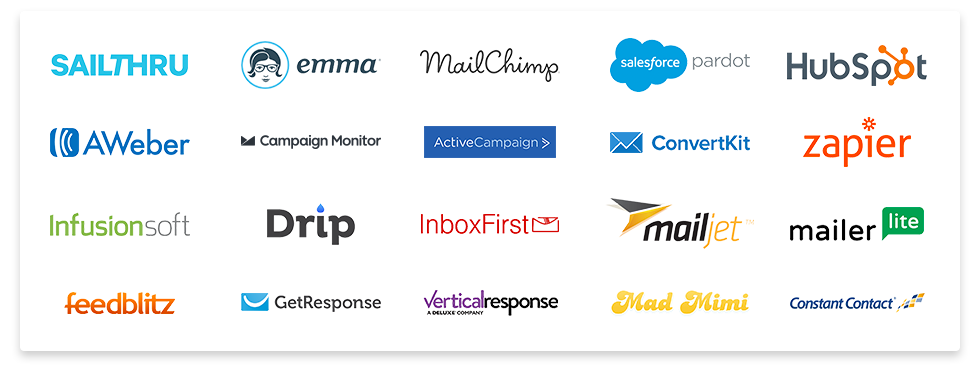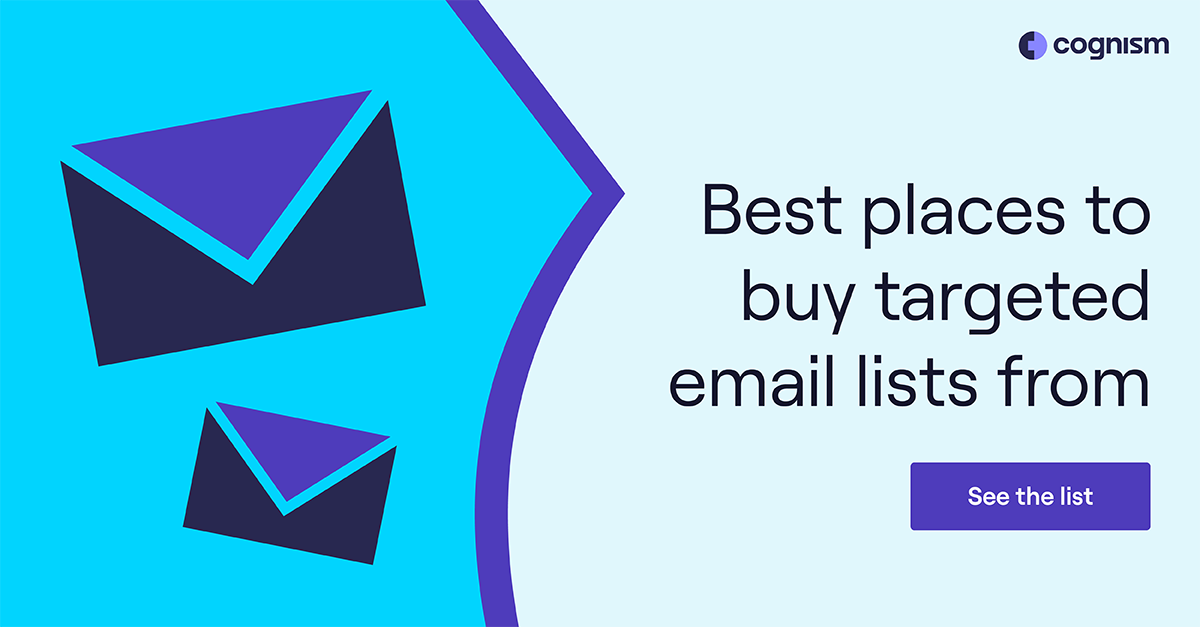To ensure you're receiving accurate information that is compliant with the law and meets your goals for marketing, it's important to consider the following key elements. The following are the most significant factors to consider: 1. Data Quality and Accuracy
Source of Data - Check the source of the data. It could be professional directories like medical databases or verified opt in contacts. This will to ensure that email addresses are up-to-date and relevant.
Verification procedure: Make sure whether the list has been verified. Providers need to have a process in place for verifying email addresses, and then removing non-active or invalid ones. A high-quality list has a low bounce rates and higher deliverability.
Segmentation, Customization and Filtering: Select lists that allow you to filter your search by subspecialty and geographic area (e.g. clinical pathology, pathology for forensics), number of years of experience in the field or affiliation with an institution. Customization allows for more targeted marketing, boosting your odds of reaching the correct audience.
2. Legal Regulations
Data Privacy Regulations: Ensure that your email list is compliant with privacy laws pertaining to data such as the General Data Protection Regulation (GDPR) in Europe, the California Consumer Privacy Act (CCPA) in the U.S., and any other laws that are relevant. The pathologist data collected should be handled in a lawful way that respects the privacy of the individual.
CAN-SPAM Act : If reside in the U.S.A. or you are aiming at U.S.pathologists make sure that your email list conforms to the CANSPAM Act. It governs all commercial emails. Non-compliance can result in hefty fines.
Consent to Opt In: Make sure to ensure that the emails included in the list were gathered in accordance with the consent. This ensures the pathologists have opted-in to receiving marketing materials, thus reducing spam complaints and maintaining your brand's reputation.
3. Provider Reputation
Credibility of the Provider: Search for a reputable company that has a history of supplying accurate and reliable lists. For a better idea of the service, check reviews, testimonials, as well as references from healthcare marketing.
Transparency: The provider should be transparent about their data gathering methods as well as the frequency at which the information is up-to-date. Avoid providers who do not disclose the origin of their emails.
Customer Support - Find companies that provide excellent customer support in the event of technical issues or when you need help with your checklist.
4. Cost and Return on Investment (ROI).
Pricing Models: Different pricing models are available, including pay-per-contact or flat-fee for the list or a subscription. Make sure the price is in line with your marketing budget and the potential ROI.
Refund Policy. Some service providers provide refunds on emails that don't meet the requirements of their service or are not valid. Review the refund policy or replacement policy of your service provider.
Value for money: Compare the cost against the high-quality of the list as well as the services provided (e.g. campaigns management and CRM integration). The cheapest list may not be the most efficient if it results in poor deliverability.
5. Ownership and use of data
Licensing and Usage Rights: Determine whether you're purchasing the list for a single use or if you'll be able to use the data to run ongoing campaigns. Certain providers offer a license for one-time usage while others allow unlimited usage. The latter can be better suited for long-term campaigns.
Shared Lists vs. Exclusive lists: Find out whether the list of email addresses you have is exclusively yours or shared with other people. Shared Lists - Find out if your email list is private or shared. Exclusive lists tend to be more efficient since contacts aren't constantly bombarded with messages from different sources.
6. Data Format and Integration
Integration with CRM/Email Marketing Tools: Check that the list of email addresses you are using can easily integrate with any existing Email Marketing or CRM tools. The data should be in a standard format such as CSV, Excel or other formats that are easy to import.
Data Segmentation: Assess how easy it is to segment and filter the list once it has been integrated. Effective segmentation allows for targeted email campaigns that have more open rates and higher response rates.
7. Ethical Aspects
Relevance of your message Pathologists are highly skilled experts. Your message, product or service should be relevant to the needs of your target audience. Sending out irrelevant information may endanger the reputation of your brand or result in spam complaints.
Spam reports are typically due to sending out unrequested emails or content. Use the list in a responsible way to prevent a negative impact on your reputation.
The final sentence of the article is:
The purchase of an email list for pathologists can be an effective marketing tool when done correctly. Prioritize quality of the data as well as legal compliance and provider reputation to maximize the effectiveness of your outreach. Be sure the list is tailored to your specific needs and always adhere to rules regarding data privacy and ethical marketing practices. Take these considerations into account when creating an effective and efficient mailer that is targeted to pathologists. View the expert pathologist email list for more info.

What Should I Consider Before Purchasing An Urgent Care Email List?
In order to determine if an urgent care email database is effective as well as accurate, reliable and appropriate for your marketing goals, you must evaluate several factors. The most important considerations are: 1. Accuracy and Quality of Data
Source of Data: Ensure that the data provider gets their information from credible sources like medical associations, databases for healthcare or professional directories. Avoid lists compiled by scraping, or using unreliable techniques. They may contain outdated and incorrect information.
Verification: Confirm if the email list was regularly updated. A reliable email provider will follow a strict verification process to eliminate outdated duplicate or invalid emails. This will guarantee high delivery, and lower bounce rates.
Segmentation and Targeting: The segmentation should include details such as the place of the facility (e.g. city, state, or region) as well as its size and any specific areas of expertise (e.g. diagnostics, pediatrics) and roles of key decision-makers (e.g. doctors, practice owners, etc.). Lists that are targeted improve the reach of your outreach and boost engagement.
2. Legal Regulations
Data Privacy Laws: Ensure the compliance of local and national regulations, including the California Consumer Privacy Act, that is in force in the U.S.A. and also as relevant European laws on data protection. It is a requirement that data collected from email addresses must be collected with the appropriate consent, and then collected in a legal way.
CAN-SPAM Act Compliance: in the U.S., your email marketing campaigns must be in compliance with the CAN-SPAM Act. It is important to provide an easy and simple opt-out option. Avoid using misleading subject lines as well as your physical address. Non-compliance will result in penalties or a damaged image of your brand.
Opt-in Consent: Ensure that all email addresses on the list were acquired with consent. This means recipients have explicitly agreed to receive marketing messages. This will reduce the risk of legal and spam-related complaints.
3. Provider Reputation
Established Providers: Choose one that has an established track record of offering high-quality and reliable lists. Review testimonials, reviews, or case studies from previous customers to assess the company's reliability and satisfaction with their customers.
Transparency: The service provider must be transparent about how data was collected and when it's changed. If the provider of data isn't able to provide you clear answers, then it could be a sign of poor quality data.
Customer support: It's vital to have a reliable customer service team if you are looking for assistance with any problems with your list or its customization. A company that is responsive can to help you get the most value out of your list.
4. Return on investment (ROI) and cost
Pricing models Email list providers have various pricing models including flat fees or pay-per-contact. The pricing model should be evaluated in relation to your marketing budget and the ROI that you are expecting. Think about the cost and quality of your list.
Refund Policy or Replacement Policy. Reputable providers offer refunds or replacement policies if the majority of their emails are not valid or not deliverable. Be sure to read the details of this policy prior to purchasing.
Value for money: Don't choose the most affordable choice. Instead, choose lists that are reliable and have detailed segmentation. By investing in lists that are of high quality, you will increase engagement and improve the ROI.
5. Use and Ownership of Data
Lists that can be used several times or only for one campaign: Make sure you are clear about whether the list is meant to be used only once or several times. Lists that allow multiple uses are more valuable, particularly when you intend to conduct continuous outreach campaigns.
Exclusive vs. shared lists: Find out if your list is exclusive or shared. Shared lists can lead to lists fatigue since recipients may receive marketing messages from several companies, reducing engagement rates.
6. Data Integration and Format
Check for CRM compatibility: Make sure the email list is provided in a format compatible with your customer relationship management (CRM) or email marketing platform, like CSV or Excel. This will ensure a smooth integration and enable you to launch your campaign swiftly.
It must be easy to manage and segment it according to your criteria. A well-organized list will help you to personalize and focus your email messages more effectively.
7. Ethical Questions
Relevance and value of content: Urgent caregivers are busy professionals, so the content that you distribute must be relevant and useful. Customize your messages to meet their particular needs like the medical equipment, medical supplies or healthcare technology they need. Sending irrelevant messages can harm your reputation and decrease engagement.
Avoid spam: Limit the frequency of your emails. Unsolicited or excessive emailing can result in complaints about spam and lower the reputation of your sender.
We also have a conclusion.
Be sure to consider the accuracy of the data as well as the legal compliance, and the reputation of your provider when buying an email list for urgent help. Be sure that the list is regularly updated and segmented and in compliance with privacy regulations. When you invest in a high-quality targeted list, and sending relevant content, you will maximize engagement and achieve the highest ROI. Check out the best urgent care email list for site examples.
